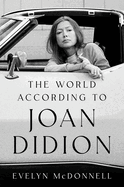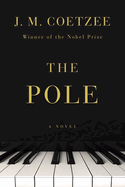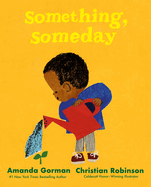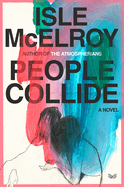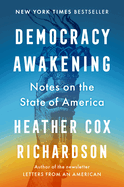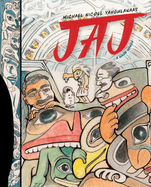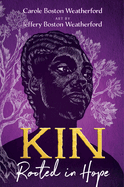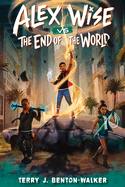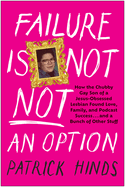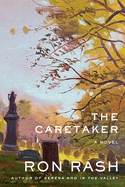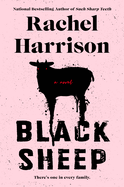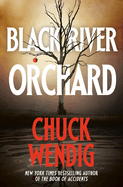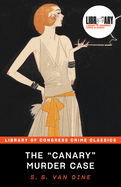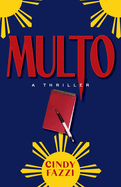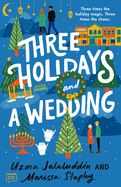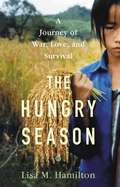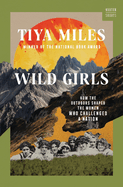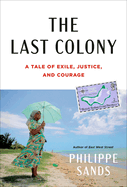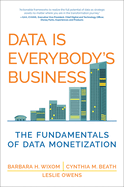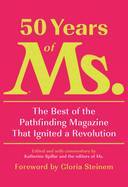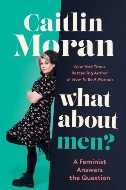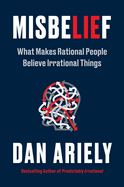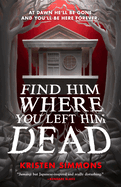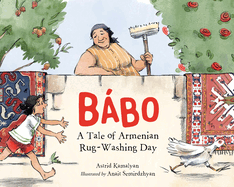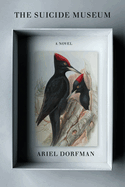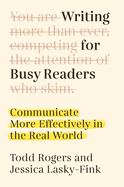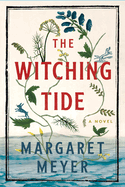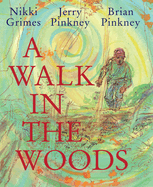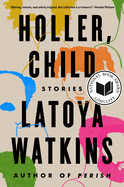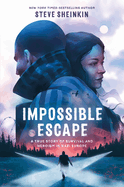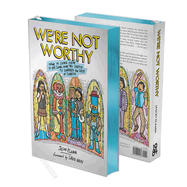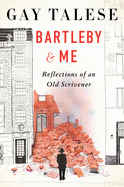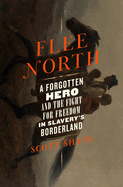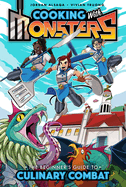Friday, September 29, 2023
Some great nonfiction among this week's reviews: The World According to Joan Didion by Evelyn McDonnell is "written with a feminist's eye, a poet's command of language, and a fan's yearning"; Heather Cox Richardson "offers an eye-opening history and her thoughts on the current state of U.S. democracy" in Democracy Awakening: Notes on the State of America; and in Something, Someday, presidential inaugural poet Amanda Gorman "tells one story with her words while Caldecott Honor artist Christian Robinson suggests another with his pictures." Plus so many more!
In The Writer's Life, Joy McCullough, a National Book Award finalist for Blood Paint Water, talks with Hannah V. Sawyer, her student and a debut novelist, about where life meets art.
The Pole
by J.M. Coetzee
To tell a story is to risk boring an audience. To tell a story an audience has heard before risks boring them twice over. But The Pole, from Nobel Prize Laureate and two-time Booker Prize-winner J.M. Coetzee (Late Essays; The Schooldays of Jesus; The Childhood of Jesus), sounds the depths of its characters' extraordinary inner lives contained within their familiar shells.
Beatriz is a board member for a musical organization in the Gothic Quarter of Barcelona that invites esteemed performers for monthly recitals. A civic-minded wife of a successful banker and a mother living a comfortable bourgeois life, she is surprised to draw the attention of a visiting Polish pianist known for his unusually measured interpretations of Frédéric Chopin. She is amused but finds him pathetic and unattractive, and herself incurious. Nonetheless, his polite, sincere romantic affections grow on her, and she determines to allow herself some curiosity. Their brief involvement is gratifying though hardly transformative, until a final chapter explores what the affair leaves behind, and the consequences of artistry and love for their human carriers.
The Pole is a methodical story of classical love, told from the less-than-familiar perspective of the nearly indifferent she who is loved, rather than the familiar obsessive he who loves. With keen insight, deft and purposeful formal play, and simple but rhythmic prose, The Pole achieves a quiet, meditative mood--reminiscent of fine music--within which a rare kind of deep listening, and perhaps even human understanding, can occur. --Walker Minot, writer and editor
Discover: From Nobel Laureate and two-time Booker Prize-winning author J.M. Coetzee comes The Pole, a quiet, meditative, and subtly experimental variation on the classic theme of romantic love.
People Collide
by Isle McElroy
Isle McElroy (The Atmospherians) takes readers on a mind-bending journey of gender exploration and body politics with People Collide. Much of the novel is told from the perspective of Eli Harding, an American man living in Bulgaria with his wife, Elizabeth, a highly accomplished writer with a prestigious teaching fellowship. Eli is also a writer, but less successful--at everything--than his impressive spouse. In the novel's opening pages, he discovers that he has woken up in Elizabeth's body. Elizabeth herself has disappeared.
Eli first hides away in the couple's apartment, waiting for Elizabeth--whom he assumes now occupies his body--to return, or for this mysterious "Incident" (as he thinks of it) to right itself. When he ventures out, he dresses Elizabeth's body, applies makeup, and decides that she was right: a male friend was condescending to her all this time. Then both Eli's mother and Elizabeth's parents push for action: he is sent to Paris by his own mother (who believes he is Elizabeth) to search for her vanished son. He finds his wife--indeed, in his own body--and the surreality intensifies.
Beyond the gender binary and the public's assumptions based upon appearances, McElroy's insightful novel also examines class, privilege, the art world, and family relationships. Everyone judges Eli harshly for abandoning his wife--an irony, because it was, in fact, Elizabeth who did the abandoning, in his body. People Collide is sly, clever, funny, provocative, and compelling. It offers a world and a story to get lost in. --Julia Kastner, librarian and blogger at pagesofjulia
Discover: In this smart, absorbing, thought-provoking novel, a husband and wife mysteriously swap bodies and experience widely varying impressions and reactions.
The Caretaker
by Ron Rash
There's such a thing as being too protective of your offspring, as Ron Rash (In the Valley; Above the Waterfall; Something Rich and Strange) dramatizes with shocking clarity in The Caretaker. As in previous Rash novels, the setting is Appalachia. It's the early 1950s. Blackburn Gant, his face disfigured from polio, is the live-in caretaker for the cemetery of Blowing Rock, N.C., a job he accepted because, "[t]he dead could do nothing worse to him than the living had already done." His childhood friend Jacob Hampton is the son of a prominent local couple whose two daughters have died. When Jacob goes off to fight in the Korean War, he leaves in Blackburn's care his pregnant teenage wife, Naomi, with whom he eloped--an arrangement that prompted Jacob's parents to disinherit him.
That would be tension enough for most novels, but Rash has further complications in mind. When Naomi returns to her father's Tennessee farm, Jacob's parents receive word that their son was gravely wounded. This leads to a monstrous lie his parents hope will get Naomi and her family out of their lives. This material could have been tawdry melodrama, but Rash is a savvy writer who delves deeply into each character's motivations, and he turns a simple tale of grief and prejudice into a complex and satisfying read. The ending is too pat, but the journey leading to it is a marvel of concision and empathy. The Caretaker is another memorable work from a bard of the American South. --Michael Magras, freelance book reviewer
Discover: Ron Rash paints a devastating portrait of grief and resentment in the tale of a North Carolina cemetery worker, and the lengths to which one family will go to protect its reputation.
Black Sheep
by Rachel Harrison
Black Sheep by Rachel Harrison (Such Sharp Teeth; Cackle; The Return) moves inexorably from the darkly absurd into terrifying horror. Readers follow apathetic, antisocial Vesper Wright as she returns home to her estranged family and learns that what she knew of her unorthodox upbringing was just the beginning.
Vesper is 23 years old, working as a server at a chain restaurant "in an unglamorous part of Westchester County, sporting a polo and serving plates of baby back ribs I was fairly certain were generated in a lab." She's unhappy but relieved to be free from the family, community, and church in which she was raised--until she receives an invitation to attend the wedding of her former best friend and her first boyfriend. Magnetically drawn to the place she misses, dreads, and still thinks of as home, Vesper reencounters not only the unusual church but her powerful mother, a horror movie megastar who never proved very maternal: "I'd only ever seen her emote on screen, her vulnerability behind glass. She was more human to me when she was pretending to be someone other than herself." What she finds at home will blow Vesper's world, and perhaps literally the entire world, wide open.
Early on, Black Sheep exhibits black humor and an accessible 20-something nihilistic angst. The novel is can't-look-away riveting in its best and most disturbing moments, gripping readers on both conceptual and visceral levels. Vesper's discontent and wrestling with her own worst self, her former family's creepy cultlike demeanor, and the final crescendo of action add up to an unforgettable adventure. --Julia Kastner, librarian and blogger at pagesofjulia
Discover: In this darkly comedic yet philosophical horror novel, an unhappy 20-something returns home to the insular community and church she'd left behind only to find frights worse than she'd remembered.
Mystery & Thriller
Black River Orchard
by Chuck Wendig
Chuck Wendig revisits the horror genre in Black River Orchard, a story spurred by an obsession with heirloom apples and the discovery of a handwritten note in his couch cushions that bore the names of three demons. This hefty, well-paced novel moves from creeping parenthetical dread to stomach-turning gore ("now a flesh-kite of a man stretched wide, a syrup-slick patch of raggedy meat putty"), while showcasing fraught relationships and the harm of pursuing power.
In a lesser writer's hands, the extensive cast of characters could prove too much to follow: Dan chases, at any cost, dreams of an orchard; Calla, his daughter, counts down to Princeton; Emily's marriage is failing; Joanie lists her home on Airbnb for those interested in BDSM; and John seeks rare apple trees. But Wendig (Dust & Grim; Invasive; Zeroes) carries readers with ease. A tree in a dead orchard is grafted with ill-gotten scionwood; an association maintains a ritualistic chokehold on a Pennsylvanian community; a body is found in the river; and a new stall appears at the farmer's market. One bite of a red-black apple transports eaters to bliss, and the second makes their eyesight a little better. Mouths perpetually water for more as obsession flourishes, and related oddities turn sinister. Delightfully titled short chapters become longer sections that shuffle snippets of fear and carnage like a deck of cards, barreling toward an upsetting yet satisfying ending. Wendig underpins his horror with complexity and depth, evoking the dichotomy of violence and peace as deftly as he deals out squelching innards in a novel that will satisfy diehard horror fans and dabblers alike. --Kristen Coates, editor and freelance reviewer
Discover: Black River Orchard is a horror novel that pairs gruesome gore with the tenacity of cosmic good and enduring evil, all against a backdrop of family, failure, and friendship.
The "Canary" Murder Case
by S.S. Van Dine
Locked-room mysteries are having a moment, but Willard Huntington Wright (writing as S.S. Van Dine) was among those who got there first. Originally published in 1927, The "Canary" Murder Case stars a charismatic amateur sleuth who is both as smart as he thinks he is, and more pompous than he realizes.
The second Philo Vance mystery (after The Benson Murder Case) begins with the murder of Margaret Odell, a Broadway starlet whose strangled body is discovered one morning in her ground-floor Manhattan apartment. According to the building's night telephone operator, Odell had only one visitor the previous evening: her date. The operator saw the man emerge from Odell's unit; minutes later, both men heard her scream and then reassure them through her door that she was fine. There's only one door to Odell's apartment, and iron bars protect all the windows. As Vance puts it, "How, oh how, did the fair Margaret's executioner get in?" And why, oh why, was she killed?
Readers of The "Canary" Murder Case may be a step ahead of Vance on one point, but he's consistently two steps ahead of the district attorney, whose reverence for facts clashes with the sleuth's near fetishism of intuition. An independently wealthy American who retained the English accent he picked up abroad, Vance is ostentatiously erudite and reliably--if not always intentionally--amusing. A typical remark: "Recognition of my transcendent genius, I see, is destined to be posthumous." Readers just discovering this series may come to regard Vance as highly as he regards himself. --Nell Beram, author and freelance writer
Discover: Originally published in 1927, the second novel in the Philo Vance series is a Manhattan-set locked-room mystery whose solution is left to the amusingly pompous amateur sleuth.
Multo
by Cindy Fazzi
Nonfiction writer Cindy Fazzi's page-turning debut thriller, Multo--first in a planned series--delves into the plight of undocumented immigrants. The moral issues around deportation are explored through Filipino American Domingo, who equally believes in his career while also feeling ethically conflicted by it. Domingo's job as a bail enforcement agent (a term he prefers to "bounty hunter") requires that he find criminal undocumented immigrants for deportation. His white boss and his clients call him Sunday, an Americanized version of his name that he adopted when he became a U.S. citizen at age 17. Domingo, who knows well that his brown skin allows him to blend into immigrant communities, sympathizes with those he finds, the "desperate hopefuls," and he justifies his work by noting that he is seeking criminals. But secretly he writes an underground guide to help the undocumented navigate the system.
Domingo calls the undocumented immigrants "multo," meaning ghost in Filipino, because they are invisible to most people. His main multo is Monica Reed, the illegitimate daughter of a wealthy former general who hired Domingo to find Monica. The general planned to have Monica killed, as her existence embarrassed him. Domingo previously captured Monica twice: once he let her go, and once she escaped. Now Monica will inherit the fortune of the general's widow, who wants to make amends. Domingo's third search for Monica takes him cross country, encountering violence, shady characters, and a celebrity's deadly secrets. Multo's gripping suspense never falters. Fazzi (My MacArthur), who is Filipino American, impressively captures Domingo's ability to straddle two worlds--but also his inability to belong to either--as he moves freely among the undocumented. --Oline H. Cogdill, freelance reviewer
Discover: A Filipino American bail enforcement agent, who finds undocumented immigrants for deportation, believes in his career while simultaneously feeling ethically conflicted by it.
Romance
Three Holidays and a Wedding
by Uzma Jalaluddin and Marissa Stapley
Tacky Christmas sweaters, brightly colored saris, and candle-adorned menorahs light up the pages of Three Holidays and a Wedding, a holiday rom-com overflowing with festivities. Set in December of 2000, when Christmas, Eid, and Hanukkah all fall within days of each other, this novel by Uzma Jalaluddin (Much Ado About Nada) and Marissa Stapley (Lucky) is a celebration of faith and community. Anna Gibson is supposed to have a perfect first Christmas with her boyfriend and his family, whose fine-tuned festivities have strict dress codes and on-the-dot schedules. Maryam Aziz is expected to plan and attend her sister's sudden wedding amid Ramadan celebrations with her family. Anna and Maryam meet at the airport, unaware that they will soon comfort each other through terrifying turbulence and an emergency landing in a small Canadian town aptly named Snow Falls, a place experiencing what the newscasters call "Snowmageddon."
Anna, Maryam, and the wedding party reluctantly check into the Snow Falls Inn. Despite the unending snow, the town's festive charm and surprisingly accepting community begin to thaw the hearts of many. Anna finds an unexpected connection with an actor in town for the sequel to a popular Christmas film, and Maryam navigates being stranded with her lifelong crush, Saif. The women find strength in their new bonds in this novel of self-discovery, unlikely friendship, and a touch of holiday magic. The picturesque Snow Falls is brimming with holiday cheer, highlighting the joy everyone can find during the most wonderful time of the year. --Clara Newton, freelance reviewer
Discover: This multicultural holiday novel combines celebrations of Christmas, Eid, and Hanukkah in a snowy story of friendship, family, and festivities.
Graphic Books
JAJ: A Haida Manga
by Michael Nicoll Yahgulanaas
Internationally renowned artist, author, and activist Michael Nicoll Yahgulanaas began melding traditional North Pacific Indigenous iconography and modern Asian artistic influences in the late 1990s to create "Haida manga," introduced in his award-winning Red (2009). In JAJ, Yahgulanaas returns with his spectacular hybrid artistry to brilliantly interrogate first contact between Europeans and the Indigenous people of his ancestral home, western Canada's Haida Gwaii archipelago. JAJ, the opening page reveals, has two meanings: "(1) one who decides (Hindi), (2) Johan Adrian Jacobsen." Both are haunting references: the deciders are invading Europeans, among them adventurer and ethnographer Jacobsen. The initial European arrivals to the islands were "in need of rescuing"; their "brief time together was filled with common purpose. And with friendship." The island populations thrived, creating "sophisticated structures for mariculture, agriculture, aquaculture... all kinds of culture." But with outside discovery, peace didn't last: "Then the others came... hungry, disrespectful, and illegal by any law." Smallpox followed, decimating indigenous communities. Woven through the violent colonial history is Jacobsen's personal journey that leads him to his arrival at Haida Gwaii with his "shopping list from Berlin" for Indigenous treasures.
Like Red, the phenomenal pages of JAJ can be deconstructed and reassembled into a large single image, without the narrative text. The original mural was commissioned in 2021 by Berlin's Humboldt Forum where, incredibly, the totem pole Jacobsen carried back to Europe is also displayed; the Forum's predecessor institution, Berliner Museum für Völkerkunde, sent Jacobsen to Haida Gwaii in the 1880s. Utterly remarkable is the confluence of history, family ancestry, fine art, inventive bookmaking--all available to witness here in Yahgulanaas's unforgettable gift of Haida Manga. --Terry Hong, BookDragon
Discover: Artist, author, and activist Michael Nicoll Yahgulanaas creates another magnificent Haida manga, spotlighting the legacy of European and Indigenous contact in Canada's Haida Gwaii archipelago.
Biography & Memoir
The World According to Joan Didion
by Evelyn McDonnell
As she was in life, Joan Didion (1934-2021) in death is a subject of fascination. Evelyn McDonnell (Women Who Rock) indulges her own fascination in The World According to Joan Didion, an impressionistic tour of Didion's life, written with a feminist's eye, a poet's command of language, and a fan's yearning.
McDonnell breaks her narrative into 14 chapters that could succeed as stand-alone essays. Each chapter is named for something that "figured large" in Didion's life. "Snake" is about the land of Didion's California forebears as well as her fear of the reptile that gives the chapter its title. "Stingray"--named for Didion's Corvette, against which she famously posed--is about her iconic style and her life as half of a Hollywood screenwriting power couple. "Girl"--"the hardest chapter to write"--is a gut punch about Didion and husband John Gregory Dunne's daughter, Quintana, who struggled with alcoholism and whose death at 39 prompts uncomfortable questions bravely considered by McDonnell.
The World According to Joan Didion is a work of detection: McDonnell examines Didion's sentences for clues about her essence, and her essence for clues about her sentences. Mindful that place "was not just a setting in her writing; it was a character," McDonnell visits some of Didion's haunts, among them a Hawaiian hotel and Manhattan's Upper East Side, where the writer lived out her days. Adding particularized insights are McDonnell's interviewees, many of whom knew Didion well. By book's end, McDonnell's readers will feel they do, too. --Nell Beram, author and freelance writer
Failure Is Not NOT an Option: How the Chubby Gay Son of a Jesus-Obsessed Lesbian Found Love, Family, and Podcast Success... and a Bunch of Other Stuff
by Patrick Hinds
In his enthusiastic and hilarious memoir, Failure Is Not NOT an Option, true-crime podcaster Patrick Hinds (The Q Guide to NYC Pride) takes readers through his life by recounting (and embellishing) his failures with zeal. He starts with his " 'indoor kid' origin story" (spurred by the discovery of a human corpse on his route home from work), and moves through his high school and collegiate time on stage ("traveling competitive drama club--does it get any gayer?") before he attempts a more traditional career path, with disastrous results. With much humor, Hinds recounts the relatable banalities of life as well as more unattainable realities, such as when he collected Golden Girl Bea Arthur at the airport as an intern, and she hated him on sight; a home daycare catastrophe; and attending a celebrity-filled party where he tried to solve a "family mystery" of whether actress Glenn Close ever hooked up with his mom.
There's a beating heart underneath his stories--gratitude for every chance and for the people who take those chances with him: "For all the epic mistakes I've made in my life, one of the things I have managed to absolutely nail is surrounding myself with people who generally say 'yes' when I excitedly present them with my big ideas." Hinds's guiding ethos of wholeheartedly throwing yourself into every decision makes for a memoir of a joyful life--including both fiascos and triumphs, which he shares with no embarrassment--that doesn't fall victim to becoming a trite collection of instructive life lessons. --Kristen Coates, editor and freelance reviewer
Discover: Failure Is Not NOT an Option is a hilarious and heartfelt memoir of a life full of failure from a popular true-crime podcaster.
The Hungry Season: A Journey of War, Love, and Survival
by Lisa M. Hamilton
Journalist Lisa M. Hamilton (Deeply Rooted) paints an intimate, thoughtful portrait of a Hmong family's journey from Laos to Thailand and eventually to California in her second nonfiction book, The Hungry Season. Spanning decades and continents, Hamilton's narrative focuses on Ia Moua, born during the turbulent 1960s to a farming family in northern Laos, and her determination to survive--even thrive--through war, hunger, and abuse.
In a narrative both practical and cinematic, Hamilton gives readers a primer on the turbulent political conditions in Laos in the mid-1970s, when Ia (then 11 years old) and her family fled their village due to war. They soon returned, only to flee again several years later, this time to the Ban Vinai refugee camp in Thailand. By now, Ia was married to a local teen, Chou Lor, and pregnant with their first child. During their 15 years at the camp, she grew from a shy young wife to a savvy, confident mother and businesswoman, running several businesses with Chou Lor and saving money for their eventual journey to California.
Hamilton deftly places Ia and Chou Lor's story in the larger context of postcolonial chaos in Laos and its neighboring countries. She also details the difficulties many Hmong people have faced in assimilating to American life, including racism, inadequate social services, and increased immigration restrictions under President Donald Trump. Extensively researched, nuanced, and compassionate, The Hungry Season is a detailed look at an immigrant experience often overlooked. --Katie Noah Gibson, blogger at Cakes, Tea and Dreams
Discover: Journalist Lisa M. Hamilton's second nonfiction book paints an intimate, thoughtful portrait of a Hmong woman's journey from Laos to California.
History
Democracy Awakening: Notes on the State of America
by Heather Cox Richardson
Historian Heather Cox Richardson (How the South Won the Civil War) dedicates Democracy Awakening to those who have joined her in "exploring the complex relationship between history, humanity, and modern politics"--a description that perfectly encapsulates not just those who may have inspired the book but also the book itself. The author of the popular newsletter Letters from an American offers an eye-opening history and her thoughts on the current state of U.S. democracy and asks: "Is the fall of democracy in the United States inevitable? And if not, how can we reclaim our democratic principles?"
Richardson doesn't quite answer this question in Democracy Awakening, instead providing much-needed historical and modern context for the question itself. She traces the historical roots of today's challenges to the democratic process, including deep analysis of the United States' framing documents (flawed though they may be), as well as the parallels between recent U.S. history and the rise of authoritarianism seen elsewhere through history and around the world. Even if the individual facts here may not surprise those who have spent time studying the relatively short history of the U.S., seeing these threads in one place brings the current political crisis into sharp relief in ways those familiar with Richardson's work will recognize. "But the true history of American democracy is that it is never finished," she writes, acknowledging that while this moment is a time of "testing," it is not yet a failed test. Blending history and modern politics, outrage and glimmers of hope, Democracy Awakening is required reading for anyone wondering how, exactly, U.S. politics have come to this--and what may come next. --Kerry McHugh, freelance writer
Discover: Democracy Awakening is an eye-opening history of United States democracy and how we've come in 2023 to what feels like a perilous tipping point in U.S. politics.
Wild Girls: How the Outdoors Shaped the Women Who Challenged a Nation
by Tiya Miles
Tiya Miles (All that She Carried; The Dawn of Detroit) presents a fascinating history of women's time outdoors in Wild Girls: How the Outdoors Shaped the Women Who Challenged a Nation. Miles discusses how being outdoors "permitted girls, consigned to cloistered domestic and ideological space, a means to experience freedom." Girls in the 19th and early 20th centuries had very few freedoms: white girls were expected to fit within rigid Victorian social strata; many Black girls were enslaved or forced to work long hours for tiny wages; and Native American girls were often taken to live in residential schools with strict and abusive rules. Miles offers brief glimmers into the lives of many of these girls, including Harriet Tubman, who used her knowledge of the outdoors and her navigational skills to take many people to freedom along the Underground Railroad; Louisa May Alcott, who repeatedly ran away from home to enjoy adventures outdoors; and the Fort Shaw Indian School's girls' basketball team, whose cohesion and physical prowess led them to win a trophy at the St. Louis World's Fair.
Perfect for history fans and those interested in women's rights, Wild Girls is a slim history that packs a punch. It will leave readers realizing how much modern people take the outdoors for granted, and how pivotal it was in the lives of many brave women in earlier centuries. --Jessica Howard, freelance book reviewer
Discover: This fascinating history explores the role of the outdoors in the lives of pivotal 20th-century women.
The Last Colony: A Tale of Exile, Justice, and Courage
by Philippe Sands
In The Last Colony, Philippe Sands combines a moving story of human tragedy and injustice with the complexities of international law to great effect.
The Chagos Archipelago is a little-known collection of islands in the Indian Ocean near Mauritius, colonized by European interests. In 1973, the British forcibly removed its longtime residents, ostensibly to make way for a United States military base on a single island. Residents for generations, in many cases descended from enslaved coconut oil workers, were deported en masse with no notice, forced to leave behind their homes, memories, pets, and any possessions that didn't fit in a single small trunk. Among them was Liseby Elysé, recently married, 20 years old, and four months pregnant. Decades later, in 2018, Madame Elysé would be present for the decision of the International Court of Justice in The Hague that would allow her to return to her home island, for which she'd yearned all those years. Her testimony would be an important part of that case.
Sands (East West Street; The Ratline) was part of the legal team representing Mauritius in its bid to free the Chagos from British control. With a lawyer's careful research and methodical laying out of the facts, Sands rewinds to 1945 and Ralph Bunche's work on decolonization at the founding of the United Nations. The Last Colony is both a neat work of detailed legal points and history, and a deeply felt narrative about the injustice of deportation and the dwindling number of Chagossians with strong ties to their homeland. There is much to appreciate about this little-known story in Sands's sensitive telling. --Julia Kastner, librarian and blogger at pagesofjulia
Discover: The 2018 freeing of an Indian Ocean archipelago from British colonial rule is both a complex case of international law and a stirring tale of injustice and homecoming.
Business & Economics
Data Is Everybody's Business: The Fundamentals of Data Monetization
by Barbara H. Wixom, Cynthia M. Beath, and Leslie Owens
Data is ubiquitous in organizations of all sizes, and data monetization means ultimately turning that information into revenue and other benefits. As Barbara H. Wixom, Cynthia M. Beath, and Leslie Owens put it in their valuable resource guide Data Is Everybody's Business: "Organizations use data not only to create valuable benefits--customer and employee satisfaction, brand capital, desired product enhancements, streamlined processes, or citizen welfare--but also to purposefully realize financial value--money--to improve their bottom line." The three authors are singularly qualified to help readers master this information, given that their insights arise from more than 28 years of research done through the MIT Sloan Center for Information Systems Research.
Throughout the course of the book, they focus on showing how institutions of all kinds, whether nonprofit or corporate, can implement a "data-insight-action" plan that results in value realization (an improvement in the bottom line). Central to this is making access and understanding of data available to all job functions, not just those with "data" in their titles. The authors provide extensive guidance on how to engage, instruct, and empower potential data users at all levels. Three core ways that they identify all organizations can benefit from their data assets are: "improving," which creates efficiencies or reduces costs; "wrapping," which enhances the offering to the customer or user; and "selling," in which the data asset itself becomes a product and a source of revenue. The insights of Data Is Everybody's Business are clear, and critical for any institution looking to become "future ready." --Elizabeth DeNoma, executive editor, DeNoma Literary Services, Seattle, Wash.
Discover: This book is a cogent resource for individuals and organizations looking to make their valuable data assets available to employees of all job functions in the service of monetization and innovation.
Social Science
50 Years of Ms.: The Best of the Pathfinding Magazine That Ignited a Revolution
by Katherine Spillar, editor
50 Years of Ms., edited by Katherine Spillar and the editors of Ms., will awaken memories of the hope inspired by the publication's inaugural issue in January 1972. Filled with nearly 200 photographs, this collection from five decades of Ms. celebrates the country's first national feminist magazine, which suggested, Gloria Steinem writes, "the radical idea that women are people." Younger readers may be astounded at the early resistance to feminism. For example, the New York Times referred to "Miss Steinem of Ms. magazine" until 1986. Steinem, the iconic feminist and cofounder of Ms., writes the foreword for this historic anniversary collection, and executive editor Katherine Spillar and publisher Eleanor Smeal describe in the introduction their efforts 30 years ago to rescue Ms. from financial turmoil. With women's rights "under intensifying attack," they write, "feminist ideas and innovations are more necessary than ever."
Organized by decades, 110 essays, stories, interviews, reports, and poetry from the magazine's history offer lines begging to be read aloud, some in celebration of progress in equality for all (Ms. advocates for women but also for racial and gender rights), and others in frustration. The book includes pieces about international feminist movements as well as pragmatic tips: a "Populist Mechanics" series in the magazine touched on such topics as "Tires--One More Thing Women Can Change." Famous, provocative covers that resonated--the five iterations of Wonder Woman; the close-up of a woman's bruised face on the "Battered Wives" issue--offer a retrospective of Ms. During the "significant patriarchal backlash to the fifty years of progress" that Ms. has helped to propel, this inspiring collection is a reminder that advocates for equality can effect change. --Cheryl McKeon, Book House of Stuyvesant Plaza, Albany, N.Y.
Discover: This collection of writing from five decades of Ms. magazine, which includes many iconic covers, is an inspiring reminder of the history of the feminist movement.
What About Men? A Feminist Answers the Question
by Caitlin Moran
Over the years, British feminist Caitlin Moran (How to Be Famous; Moranifesto; How to Be a Woman) dodged requests for her thoughts on the state of men. But in 2019, a comment during a Zoom call from her teenage daughter's male classmate--"It's harder to be a boy than a girl now"--convinced her of the advisability of asking, "Hey, literal dudes--what's going on here?" What About Men?: A Feminist Answers the Question is a serious inquiry festooned with pop-culture references and Moran's trademark wit, self-deprecation, and ribaldry.
For her investigation, Moran turned to scholarly sources; dissected the book 12 Rules for Life by scourge of feminists Jordan B. Peterson; and conducted interviews, often via "the Twenty-First-Century Saloon bar that is Twitter." Readers familiar with Moran's style will be unsurprised that some of her findings appear as Moran's Rules, starting with "50 percent of all straight men's biggest problems come down to a fear of being called 'gay.' "
What About Men? may not be trailblazing (e.g., it's long been understood that men suffer by not talking about their feelings), but because Moran's writing conjures the snappy jabber of a close friend, her points seem fresh. Although she ultimately doesn't allow that boys have it harder than girls, she cops to 10 advantages to being female. Among them: "At no point in our teenage years do women have to attempt a) parkour or b) freestyle rapping--two things which seem to be a necessary, and often very humiliating, part of being a young man." --Nell Beram, author and freelance writer
Discover: The witty British feminist Caitlin Moran launches a serious investigation into the claim that it's now harder to be male than female.
Misbelief: What Makes Rational People Believe Irrational Things
by Dan Ariely
Misbelief by Dan Ariely (Irrationally Yours), an unexpectedly optimistic book, probes the confluence of factors that lead rational people to believe irrational things. Ariely, a social scientist and professor, takes his personal experience of being vilified by Covid-deniers as a starting point, and he approaches his subjects with empathy and generosity. He invites them to join him in considering the mechanisms that drive people into the camp of misbelievers (an alternative term for "conspiracy theorists," which misbelievers dislike). Ariely theorizes a "funnel of misbelief" and devotes sections to the emotional, cognitive, personality, and social components of this funnel, with explanations, anecdotes, diagrams, and exercises. He asks readers to think about their motivation for picking up the book, and suggests that they might be looking for answers as to why their friends and relatives became misbelievers during the Covid-19 pandemic. In a conversational and engaging tone, he frequently reminds readers that no one is immune to misbelief on some level, and he includes "Hopefully Helpful" sidebars with concrete tips, based on the concepts discussed in each section, for dealing with misbelieving family and friends.
The text focuses on American contexts, but its content is applicable to much more. Ariely's humanizing treatment of Covid-deniers, alien abductees, and other misbelievers enhances the sincerity of his suggestions that readers see the misbelievers in their own lives as complex human beings. His conclusion provides hope for corrective technologies to stem, and perhaps reverse, the 21st-century trend of misbelief. --Dainy Bernstein, postdoc in children's literature, University of Illinois Urbana-Champaign
Discover: This engaging exploration of how people become misbelievers guides readers through complex situations and offers a sense of hope for the future.
Children's & Young Adult
Something, Someday
by Amanda Gorman, illus. by Christian Robinson
In Something, Someday, Amanda Gorman tells one story with her words while Christian Robinson suggests another with his pictures. Intertwining text and art on the same page results in an exquisitely complementary achievement that amplifies each half to produce a remarkable whole.
Gorman's first book for children, Change Sings: A Children's Anthem, debuted in 2021 after she made history as the youngest presidential inaugural poet. Change is again at the heart of her verses here, about effecting change when "you're sure/ There's something wrong." Despite discouragement, Gorman eschews sadness, fear, confusion, and anger. Finding "someone who will hope with you," who will work together toward "something that makes you feel/ Hopeful, happy, and loved," can make dreams come true. By using general words--sometimes, someday, somewhere, someone, something--Gorman deftly ensures her verses will find resonance in any challenging situation that encourages committed participation to enable change.
Caldecott Honoree Robinson (Last Stop on Market Street illustrator) solidifies Gorman's words with a glorious, brilliantly specific narrative. Gorman's unnamed "problem" becomes a neighborhood blighted by growing mounds of garbage. A determined child first cleans up the mess, then takes the extra step of planting a garden. Robinson's signature paint and collage art is dynamic, with visible brushstrokes that add layered texture to walls, clothing, and leaves. Each page announces and celebrates the diversity--socioeconomic, ethnicity, ability, age--among the neighbors.
Gorman and Robinson are both leaders in their respective fields. Their joint creation becomes a powerful antidote to doubters and naysayers, emphatically bearing witness that "the tiniest things/ Make a huge difference." --Terry Hong, BookDragon
Discover: Poet Amanda Gorman and artist Christian Robinson's marvelous collaboration is a magnificent, complementary achievement inspiring hopeful change.
Kin: Rooted in Hope
by Carole Boston Weatherford, illus. by Jeffery Boston Weatherford
Coretta Scott King Award winner and National Book Award finalist Carole Boston Weatherford (Unspeakable) teams up once again with illustrator son Jeffery Boston Weatherford (You Can Fly) to explore their shared past and honor their enslaved ancestors through dignified poems and stunning artwork in Kin: Rooted in Hope.
Mother and son begin their narrative in 2016 at the Door of No Return, a trading post on Gorée, an island off the coast of Dakar, Senegal, where "captive Africans/ were held for weeks, months,/ until their numbers could fill/ a ship's belly." Next, they travel to the Wye House Plantation in Easton, Md., where their ancestors were enslaved by the Lloyd family. Carole Boston Weatherford's narrative follows both chronological history and the mother/son's trip to uncover the painful past. Her poems use historical records that showcase the diverse voices of her ancestors, as well as those of the enslaving family, and even first-person points of view for ships, Chesapeake Bay, and the Wye House itself.
Weatherford's rhythmic and artistic narrative, inspired by Alex Haley's Roots, brings to life her ancestors, the places they lived, and their oppression. Additionally, her personification of places that "witnessed" generations of enslavement gives readers an unexpected viewpoint. Jeffery Boston Weatherford accompanies his mother's poems with expressive black-and-white scratchwork illustrations that add further weight, humanity, and grandeur to the history. For many Black families, the process of tracing their ancestry is difficult because of the enslavement of their ancestors; here, the Weatherfords invite readers who may feel lost and erased to share in their own history. --Natasha Harris, freelance reviewer
Discover: In this compelling and heartfelt history through told illustrated poems, a mother and son explore their past and pay tribute to their enslaved ancestors.
Alex Wise vs. the End of the World
by Terry J. Benton-Walker
Terry J. Benton-Walker's first middle-grade novel, Alex Wise vs. the End of the World, is a heartfelt and action-packed urban fantasy that follows a gay Black boy as he strives to save the world from evil gods seeking to usher in the apocalypse.
Twelve-year-old Alex Wise and younger sister Mags are displeased to be going on a summer cruise with their estranged father and his "upgraded" family. Worse yet, after the ship sets sail, a mysterious figure (the Shadow Man) snatches Mags overboard. Alex jumps into the ocean to follow her and awakens on an island. There Liam, a boy from the magical realm of Paradisum, leads Alex to the Shadow Man's cave, where Mags gets possessed by Death, one of the four Horsemen of the Apocalypse, and disappears. The Horsemen, Liam explains, launched a coup against the High Goddess of Paradisum and destroyed their world. They are determined "to conquer Earth and as many realms as they [can] get their hands on." It is up to Alex, with the help of best friend Loren, Liam, and favorite teacher Mr. Dexter, to defeat the Horsemen, stave off the apocalypse, and wrest his sister from Death's control.
Alex Wise vs. the End of the World is an exciting and genre-bending narrative that melds comic-book style adventure, urban fantasy, and teen romance into a fresh and exhilarating coming-of-age story. Thrills and snarky humor balance heartfelt, emotional moments. Benton-Walker (Blood Debts) features several LGBTQ+ characters, all of whom are portrayed with great depth and complexity, and he invites all readers, especially those who identify as queer, to love themselves first and the world after. --Cade Williams, freelance book reviewer
Discover: A heartfelt and action-packed middle-grade urban fantasy follows a gay Black boy as he strives to save the world from evil gods seeking to usher in the apocalypse.
Find Him Where You Left Him Dead
by Kristen Simmons
A sinister card game tests the fortitude of four teens who must survive an unforgiving underworld and rescue the friend they left for dead in this magnificently macabre YA horror novel.
Four years ago, Madeline, Owen, Dax, Emerson, and Ian found a game of cards in a cave and began to play. Ominous noises and shaking walls forced them to stop and flee--but Ian never made it out. The now estranged surviving teens have each been visited by the figure of Ian: "Why'd you leave me in the dark?" They return to the cave, and are transported to Meido, a hellscape of Japanese myth, where they must complete seven challenges by dawn, or Ian will be trapped forever. The teens' mutual animosity pushes everyone past their limits, but as they win more cards, it becomes clear that the constantly changing game wants players for reasons of its own.
Kristen Simmons (Vale Hall trilogy) infuses her plot with the tragic story of the Emperor Izanagi and his shunned Empress Izanami. The atmosphere is a haunting, decomposing landscape with a slowly opening monstrous eye in the clouds and gravel made of bones. Unimaginable horrors--a girl made of eels, an old man desperate for skin--torment the players. The teens find relief in humor ("I would give three toes right now for you to shut up"; "I'd give three toes for a fat free vanilla latte") as they seek the roots of their relationships. Find Him Where You Left Him Dead is a disturbing tale that slinks creepily to its chilling end. --Samantha Zaboski, freelance editor and reviewer
Discover: Four estranged teen friends return to a game they abandoned years ago to rescue the friend they left behind in this satisfying YA horror story inspired by Japanese mythology.
Bábo: A Tale of Armenian Rug-Washing Day
by Astrid Kamalyan, illus. by Anait Semirdzhyan
Astrid Kamalyan grew up in Yerevan, the capital city of Armenia, and carries fond memories of her summers there, including her childhood participation in the carpet-washings of June. She brings this sweet remembrance to life with infectious joy in her debut picture book, Bábo: A Tale of Armenian Rug-Washing Day, illustrated by Anait Semirdzhyan (The Arabic Quilt).
The book's careful pacing builds anticipation: " 'IT'S TODA-A-AY!' I love this day," the story opens. Family members pull the rugs into the street and soak, soap, and scrub them, Kamalyan animating the adventure with frequent onomatopoeia ("Woof-woof! Giggle, giggle. Cluck-cluck!") and bustling action verbs: "We hop. We mop. We plop." Her use of repetition creates a pleasing rhythm throughout the text ("Brushes bop-bop-bop"), and nearly every page captures a sensory delight: the texture of the dried cherry plums the protagonist eats before cleaning the rugs; the "bubbly clouds" atop the soap-covered rugs; the garden air that smells like "simmering rose jam"; and the sound of a chicken who steals the show. A glossary is provided for the Armenian words and phrases Kamalyan works seamlessly into the text.
Semirdzhyan, also Armenian, captures the action with broken, energetic lines; bright pops of color on an earth-tone palette; and vibrant depictions of the handwoven rugs, one a "wool-and-silk dragon carpet." The story closes with a "sunny apricot pie" treat in the kitchen. At the center of it all is the girl's beloved Bábo (grandmother), who is "sunnier than the sun." This story of intergenerational warmth should leave readers with a smile. --Julie Danielson, reviewer and copyeditor
Discover: This story, full of infectious playfulness and joy, captures childhood memories of rug-washing day in Armenia.
Shelf's September Stars
The Writer's Life
Joy McCullough and Hannah V. Sawyerr: Reclaiming Their Narratives
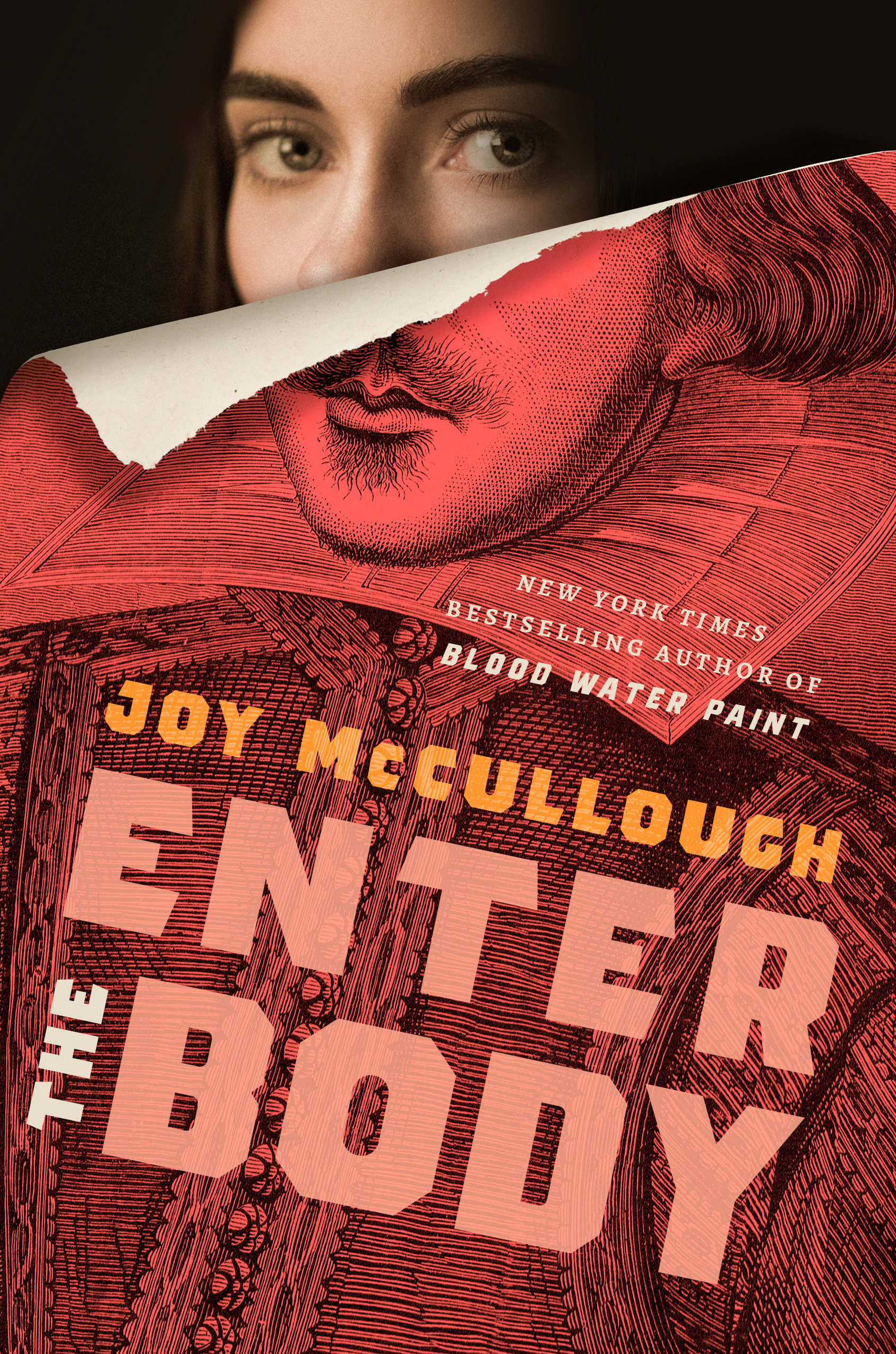 |
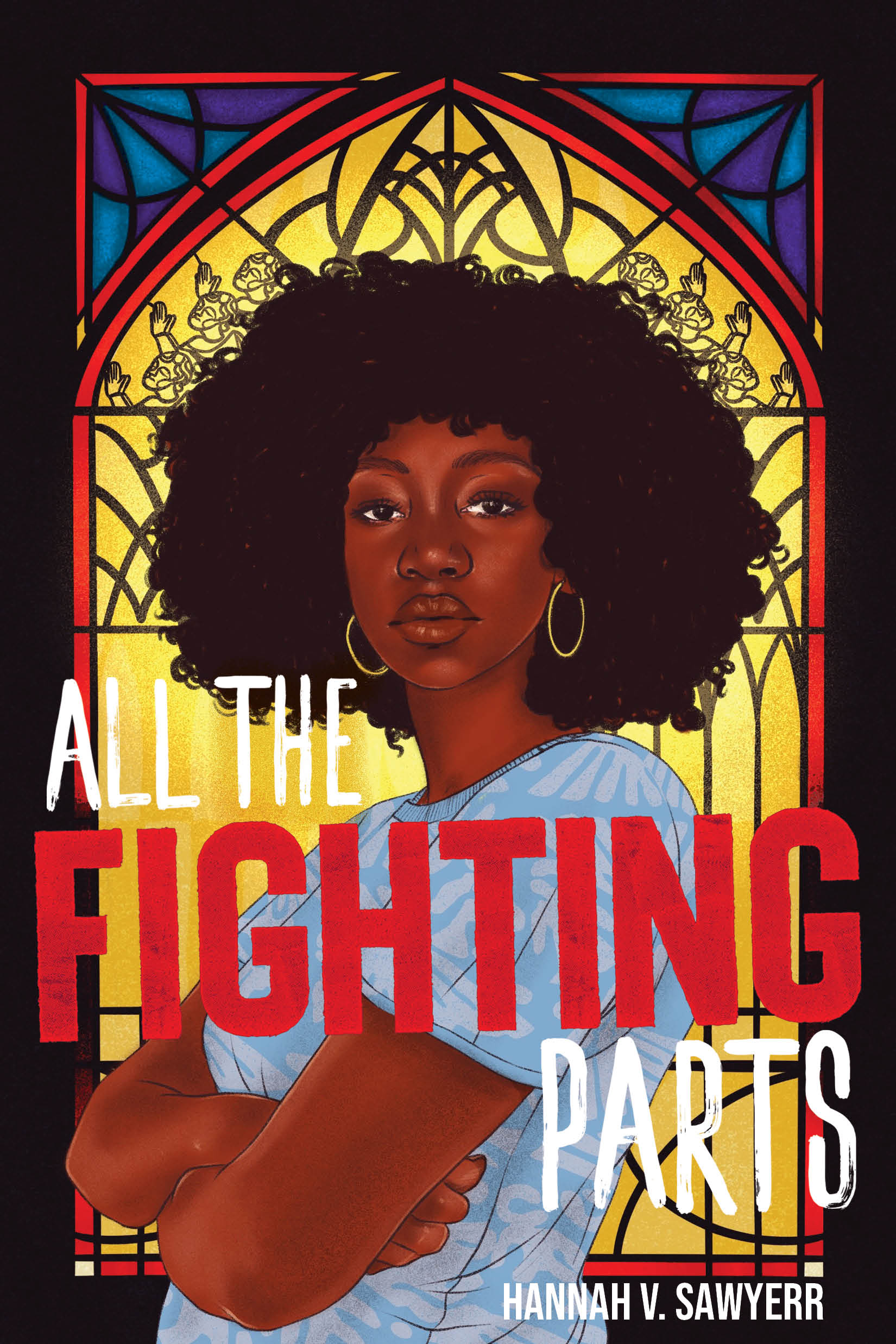 |
Joy McCullough writes books and plays from her home in the Seattle area, where she lives with her family. Her debut novel, Blood Water Paint, was longlisted for the National Book Award and was a finalist for the William C. Morris Debut Award. McCullough published two books in 2023: Enter the Body (Dutton Books, $18.99) for young adults, and Code Red (Atheneum, $17.99) for middle-grade readers.
Hannah V. Sawyerr was the Youth Poet Laureate of Baltimore in 2016. She holds a BA in English from Morgan State University, and an MFA in Creative Writing from The New School. Sawyerr is an English professor at Loyola Marymount University and lives in Los Angeles, Calif. Her debut novel, All the Fighting Parts (Amulet Books, $19.99), came out earlier this month.
The two met when Sawyerr took an online verse novel class from McCullough via Zoom in 2020 during the pandemic. Here the authors discuss their personal experiences with assault and the church, the significance of community, and the importance of reclaiming one's story.
Joy McCullough: You stood out [in class] from the first time you shared something with the [group]. When you mentioned the book you were working on--All the Fighting Parts--I instantly wanted to read the whole thing.
Hannah V. Sawyerr: Thank you so much, Joy! I was so excited to take your class because your novel Blood Water Paint was one of the first verse novels I'd ever read. It's one of the books that made me think that my book could even be possible.
 |
|
| Joy McCullough (photo: Joe Iano) |
|
McCullough: I'm so thrilled that Blood Water Paint spoke to you in that way. I feel like there's a thread from story to story: Artemisia's story (the subject of BWP) spoke to me, and I wrote it; that spoke to you, and you wrote All the Fighting Parts; and I am absolutely certain readers will be inspired to tell their stories because of yours.
Sawyerr: I think what's so special to me about your books is the theme of reclamation--we both tell stories of young women who long to reclaim their narratives. This was my experience with Enter the Body, too. What does it mean to you to write stories of women who take their power back by reclaiming their stories?
McCullough: One of the less fun things we have in common is that we both experienced abuse as teenagers in the church. When I came forward about that, not everyone believed me. That was deeply painful, obviously. So, when I write stories of young women who speak their truths and fight to be believed, it's sort of like another chance for me. And when people respond to those books, to those characters, it feels like my own story is validated in a way.
 |
|
| Hannah Sawyerr (photo: Missallaneous Media) |
|
Sawyerr: I had a similar experience of not being believed and it was really hurtful to feel like my community, who should protect and defend me, didn't. When I write my stories now, I feel like I'm protecting my younger self the way she deserved to be protected. I actually first learned of you and your work because I was following you on Twitter, and you tweeted about survival and your experience with sexual assault within the church. So even before I read your work, I felt seen just by knowing that you got through that and were able to tell stories that empower young people now.
McCullough: It's another thing our books have in common: an emphasis on helping our characters connect with the people who will support them so that they can feel less alone. In Enter the Body, I have characters who are alone in their original Shakespeare stories, but I put them together to have one another in the book. In All the Fighting Parts, one of the things I really love is watching the development of Mina's relationships--with her boyfriend, her best friend, her father, even the girl who's kind of a nemesis. They're complicated relationships, but I knew even as I read the difficult parts that Mina was not going to be alone.
Sawyerr: One thing that I remember hearing growing up is "nobody is meant to be an island," meaning people are meant to be in a community. I really felt that in Enter the Body--I loved that you wrote about characters from completely different Shakespeare plays and put them together to develop a sense of comradery and support. I think that's what's so special about community. It doesn't mean that you'll always get along with folks around you, but love is always at the center. In Enter the Body, even when the girls would bicker, it was clear to me that they were still a community.
McCullough: Yes, in both our books, the relationships are supportive, but also challenging. We see the full complexity of what it means to be in a relationship, not just the extremes of when our characters are in the worst experiences of their lives. That's why I was so happy that your character Mina has a positive, realistic relationship with a guy who isn't perfect, but is definitely good. I think it's so important to counteract the image of rape victims as broken.
Sawyerr: I agree. I was so happy to read the way you wrote Juliet speaking positively about her intimate moments with Romeo. As a survivor, it really touched me to read Juliet speak of her body and her experiences with Romeo in a way that centered pleasure instead of shame. I think it's important for young survivors to have access to stories that feature girls experiencing pleasure. For me, it's healing to read stories where young women are exploring their bodies and sexual intimacy. For young readers, I think it can serve as a reminder that these experiences can be healthy and good.
McCullough: Yes, it's one of the (many!) reasons that the rampant book banning is so harmful. Reading about sexual experiences in a book is pretty much the safest way to explore that topic. And I love author Elana K. Arnold, who says that reading a book is one of the best lessons in consent. If something is uncomfortable or just not right for a reader, they can put it down and say, "No, thank you." But for so many readers, books are where they can safely explore experiences outside of themselves.
So, we both write in verse, but we also both mix it up. In Enter the Body, I've got some sections that are in play script format. In All the Fighting Parts, you've got sections in police interview transcript, and online articles and (ugh) comments. Was that structure in your mind from the beginning, or did it develop with the story?
Sawyerr: I think verse novels are great because you spend a lot of time in a character's head, and you get to know them on a personal and emotional level. But a challenge with verse is finding a way to ground your reader. I knew how long we'd spend in Amina's head, so the court transcripts allowed me to catch up with the reader and bring us back to reality.
McCullough: And court transcripts are another thread connecting our work; the primary source document for Blood Water Paint was the court transcripts of the trial of Artemisia Gentileschi's rapist. I know that All the Fighting Parts is fiction, but I also know you were drawing from personal experience with the court system.
Sawyerr: When I wrote the court transcripts for All the Fighting Parts, I referenced the court transcripts in my own case to get in the headspace of Amina, a young woman who also comes forward against her abuser. I only read what I could handle, but what I did read was a form of study for me, similarly to how Artemisia's court transcripts served you in Blood Water Paint.
McCullough: I am so excited for All the Fighting Parts to be in the world. It is incredibly gutsy, and I just know it's going to mean so much to readers who are going to find themselves in the pages.
Sawyerr: Thank you so much, Joy. And I cannot thank you enough for the books that you've written. It's truly my hope that my work has a similar impact on people that your work has had on me and so many other readers!
McCullough: I look forward to reading your in-conversation piece in a few years, with a debut author who wrote a book because she was inspired by your story.
Sawyerr: Thank you, Joy. And I'd imagine that I'd be talking about how your books have done the same for me.
Book Candy
Book Candy
The New York Public Library offered a "banned books reading list: stand for the right to read freely."
---
"Sylvia Plath's ten back to school commandments (1953)." (via Open Culture)
---
CrimeReads "Spenser at 50: the evolution of Robert B. Parker's iconic character."
---
Merriam-Webster posed a "commonly misspelled words quiz; autocorrect can't save you now."
Rediscover
Rediscover: Braiding Sweetgrass
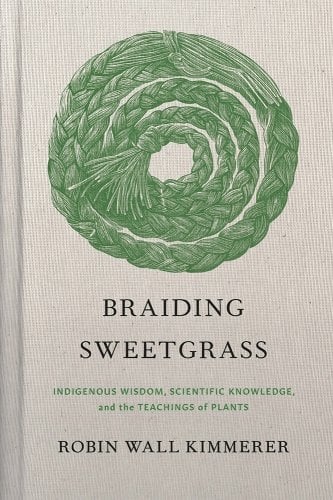 This year marks the 10th anniversary of the publication of Braiding Sweetgrass: Indigenous Wisdom, Scientific Knowledge, and the Teachings of Plants by Robin Wall Kimmerer. Kimmerer, a member of the Citizen Potawatomi Nation and professor at State University of New York College of Environmental Science and Forestry, combines Indigenous environmental knowledge with Western science into sustainable stewardship techniques by which humans can better coexist physically and spiritually with the natural world. Braiding Sweetgrass has inspired millions of readers and became a major bestseller when an updated gift edition was released in 2020. In 2022, Braiding Sweetgrass was adapted for young adults by Monique Gray Smith with illustrations by Nicole Neidhardt.
This year marks the 10th anniversary of the publication of Braiding Sweetgrass: Indigenous Wisdom, Scientific Knowledge, and the Teachings of Plants by Robin Wall Kimmerer. Kimmerer, a member of the Citizen Potawatomi Nation and professor at State University of New York College of Environmental Science and Forestry, combines Indigenous environmental knowledge with Western science into sustainable stewardship techniques by which humans can better coexist physically and spiritually with the natural world. Braiding Sweetgrass has inspired millions of readers and became a major bestseller when an updated gift edition was released in 2020. In 2022, Braiding Sweetgrass was adapted for young adults by Monique Gray Smith with illustrations by Nicole Neidhardt.
Last year, Kimmerer received a MacArthur Foundation "genius" grant. She also won the John Burroughs Medal for her first book, Gathering Moss: A Natural and Cultural History of Mosses (2003). Braiding Sweetgrass received the Sigurd F. Olson Nature Writing Award and, as of 2021, has sold more than 500,000 copies worldwide. It is available in hardcover and paperback from Milkweed Editions. The YA adaptation is available from Zest Books. --Tobias Mutter


